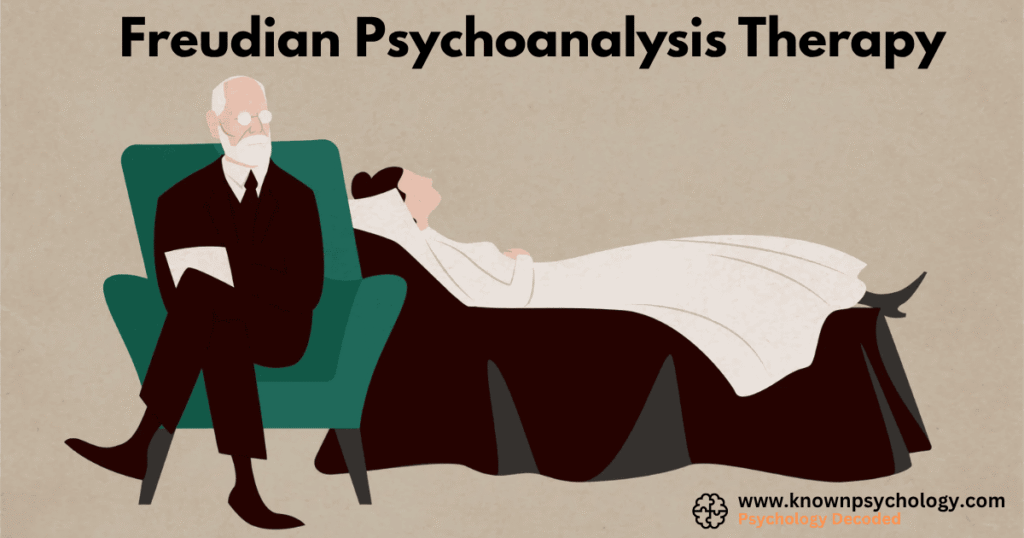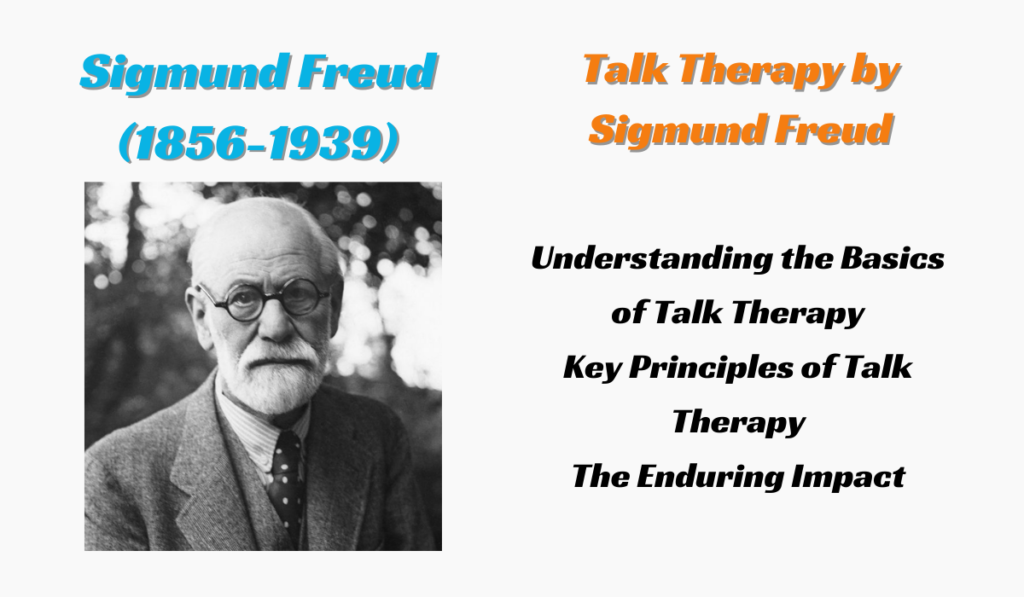
Psychoanalysis is a type of talk therapy that focuses on exploring a person’s unconscious thoughts, desires, and childhood experiences. Developed by Sigmund Freud, this method aims to bring hidden emotions and conflicts to the surface so individuals can better understand and manage their behaviors.
Key Takeaways
- Psychoanalysis therapy is a powerful form of talk therapy that helps individuals explore deep emotional patterns and unconscious thoughts that influence behavior.
- If you’re wondering what is psychoanalysis, it is a method founded by Sigmund Freud that aims to bring repressed memories and internal conflicts into conscious awareness.
- The psychoanalysis definition includes both a theory of how the mind works and a technique for treating mental and emotional disorders.
- The core psychoanalysis meaning lies in understanding how early childhood experiences and hidden desires affect our present lives.
- Freudian psychoanalysis introduced key ideas like the id, ego, and superego, and it remains the foundation of many modern therapeutic approaches.
- As a form of talk therapy, psychoanalysis involves open conversation, dream analysis, and emotional exploration over time, often leading to long-lasting personal transformation.
What is Psychoanalysis?
Psychoanalysis Definition
The official psychoanalysis definition refers to a set of psychological theories and therapeutic techniques that focus on the unconscious mind. It’s not just a therapy method — it’s also a way to understand how the human mind works.
Psychoanalysis Meaning in Simple Terms
So, what is psychoanalysis in simple words?
Psychoanalysis means digging deep into a person’s thoughts and feelings — especially those they are not aware of — to find the root of emotional or psychological problems. It’s like unlocking a hidden part of your mind to heal from the inside out.
Freudian Psychoanalysis Explained
Freudian psychoanalysis is the original form of psychoanalysis, based on Freud’s belief that early life experiences and unconscious desires shape our personality and mental health.
According to Freud’s theory of the mind, the mind is divided into three parts:
· Id – our basic, instinctual drives (like hunger or aggression)
· Ego – the realistic part that balances desires and morals
· Superego – our internal sense of right and wrong
Freudian psychoanalysis therapy helps people understand these inner conflicts and how they affect current behavior.
Psychoanalysis Therapy Techniques and Examples
Psychoanalysis therapy involves regular sessions where the patient talks freely, while the therapist listens and interprets deeper meanings. Here are some common techniques used in psychoanalysis therapy:
1. Free Association
The patient says whatever comes to mind without filtering thoughts. This helps reveal hidden emotions, desires, or conflicts stored in the unconscious.
Example:
Saying “mother” might lead to unexpected feelings or memories that open up deeper issues.
2. Dream Analysis
Freud believed dreams were the “royal road to the unconscious.” In psychoanalysis therapy, dreams are explored to uncover symbolic meanings and repressed desires.
Example:
Dreaming about being trapped might reflect feelings of being stuck in a real-life situation.
3. Transference
This is when a patient projects feelings about important people (like parents or partners) onto the therapist. Understanding this helps reveal unresolved emotional patterns.
Example:
Feeling angry at the therapist for being late may reflect deeper feelings of abandonment from childhood.
4. Interpretation
The therapist provides insights into the unconscious meanings behind the patient’s words or actions. These interpretations help the patient gain awareness and start healing.
Example:
If a patient repeatedly avoids certain topics, the therapist might explore why those subjects are threatening or painful.
5. Resistance Analysis
Resistance occurs when the patient avoids certain thoughts or topics. In Freudian psychoanalysis, this is seen as a clue to important unconscious content that needs attention.
Example:
Missing therapy sessions right before talking about childhood may signal fear of facing painful memories.
Is Psychoanalysis Therapy Effective?
Psychoanalysis therapy is a long-term process, often involving several sessions per week over months or even years. While it requires time and emotional effort, it can lead to deep, lasting changes in personality, emotional health, and self-understanding.
It’s especially helpful for:
· Long-standing emotional struggles
· Anxiety and depression
· Trauma or unresolved childhood issues
Conclusion
Understanding what is psychoanalysis opens the door to one of the oldest and most profound forms of psychological healing. From its rich psychoanalysis definition to modern therapy sessions, Freudian psychoanalysis continues to influence mental health care around the world.
Whether you’re curious about the psychoanalysis meaning or exploring talk therapy options for deep healing, this therapeutic approach offers unique insights into the human mind.
FAQs
1. How is behavior therapy different than psychoanalysis?
Behavior therapy focuses on changing specific actions and behaviors through conditioning and reinforcement techniques. It looks at present behavior rather than exploring the past.
In contrast, psychoanalysis therapy explores unconscious thoughts, early experiences, and emotional conflicts that shape current behavior. It aims for deep self-understanding, not just symptom control.
2. How does psychodynamic therapy differ from traditional psychoanalysis?
Psychodynamic therapy evolved from psychoanalysis but is usually shorter and more focused. While both explore unconscious patterns and past experiences, psychodynamic therapy:
- Involves fewer sessions per week
- Has a more conversational tone
- Focuses on present relationships and emotions
- Is less intense than classic psychoanalysis
3. How does contemporary psychodynamic therapy differ from classic psychoanalysis?
Contemporary psychodynamic therapy is more flexible and adapted to modern needs. It differs from classic psychoanalysis in several ways:
- Sessions may be once or twice a week instead of daily
- Therapists are more interactive
- It includes current neuroscience and attachment theory
- Often used for broader issues like anxiety, depression, or relationship struggles
4. How is psychodynamic therapy different from psychoanalysis?
While both therapies stem from Freud’s ideas, psychodynamic therapy is generally less intensive, time-limited, and more focused on day-to-day emotional struggles. Psychoanalysis, on the other hand, is deeper, more structured, and aims to explore the entire unconscious personality over time.
Think of psychoanalysis as a deep dive, and psychodynamic therapy as a guided swim.
5. What to talk about in therapy?
In therapy, you can talk about anything on your mind, such as:
- Emotions (stress, sadness, anger, anxiety)
- Past experiences or trauma
- Current relationship issues
- Work or life stress
- Fears or insecurities
- Life goals and decisions
There are no “wrong” topics. Therapy is a safe space for self-exploration.
6. What to talk about in therapy when things are going well?
Even when life is going smoothly, therapy is still valuable. You can talk about:
- Personal growth and future goals
- New insights or emotional shifts
- Strengthening relationships
- Building self-confidence
- Processing past events more deeply
- Preventing future setbacks
Sometimes, therapy during the “good times” leads to the biggest breakthroughs.
Bibliography
Cherry, Kendra. “How Does Psychoanalytic Therapy Work?” Verywell Mind, 2022, www.verywellmind.com/what-is-psychoanalytic-therapy-2795467
Mcleod, Saul. “Psychoanalysis.” Simplypsychology.org, www.simplypsychology.org/psychoanalysis.html
Mariam holds an MS in Sociology with a specialization in Medical Sociology and Social Psychology. With a strong academic background and extensive research work in both fields, she brings depth and clarity to complex topics. Her writing explores the intersection of society, health, and the human mind, making academic ideas easy to grasp and relevant to everyday life.


